I recently wrote about my favorite back to school resources, but I consider this post my most important back to school post, as it covers what I feel is the most essential classroom management strategy: The power of relationships. While I know that technically our job is to teach academics, but teaching is so much bigger than that.
I was able to see evidence of this over the summer when one of my former students faced an enormous personal tragedy. Despite all of the obstacles in front of her, the first person the child called was her teacher. That’s powerful to me. It reminded me of the powerful role we play in our students’ lives and the opportunity we have to make a life changing difference.
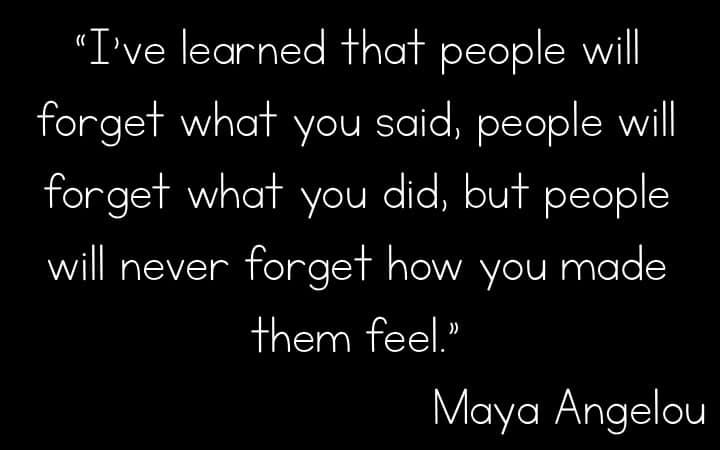
Maya Angelou‘s famous quote fits here:
I’ve learned that people will forget what you said, people will forget what you did, but people will never forget how you made them feel.
When it comes to teaching, no truer words have ever been spoken. The number one thing our students will remember from us is how we make them feel. I think I could extend this idea further by saying that no one will remember how many likes our classroom got on Instagram or how Pinterest worthy our lessons were. I don’t say that because I think those things are bad. Instead, I say that as a reminder to myself that I have to prioritize and keep things in perspective. During this time of year, I have a tendency to become overwhelmed and stressed about all the things I see others sharing on social media. I have to keep perspective that those things are fun, but they’re not what makes the biggest impact in our classroom. Our relationships are what matter most.
We all want to feel cared for and valued by the significant people in our life. When students feel that you value and care for them as individuals, they are more willing to comply with our requests. Developing positive teacher-student relations is also one of the most effective steps we can take to establish a positive climate in the classroom. Over the years I’ve also found that when I have a positive relationship with my students, they are much more likely to give their best effort academically and respond in constructive manner when we have to handle behavior issues.
All of this is exactly why I consider building relationships the most essential classroom management strategy.
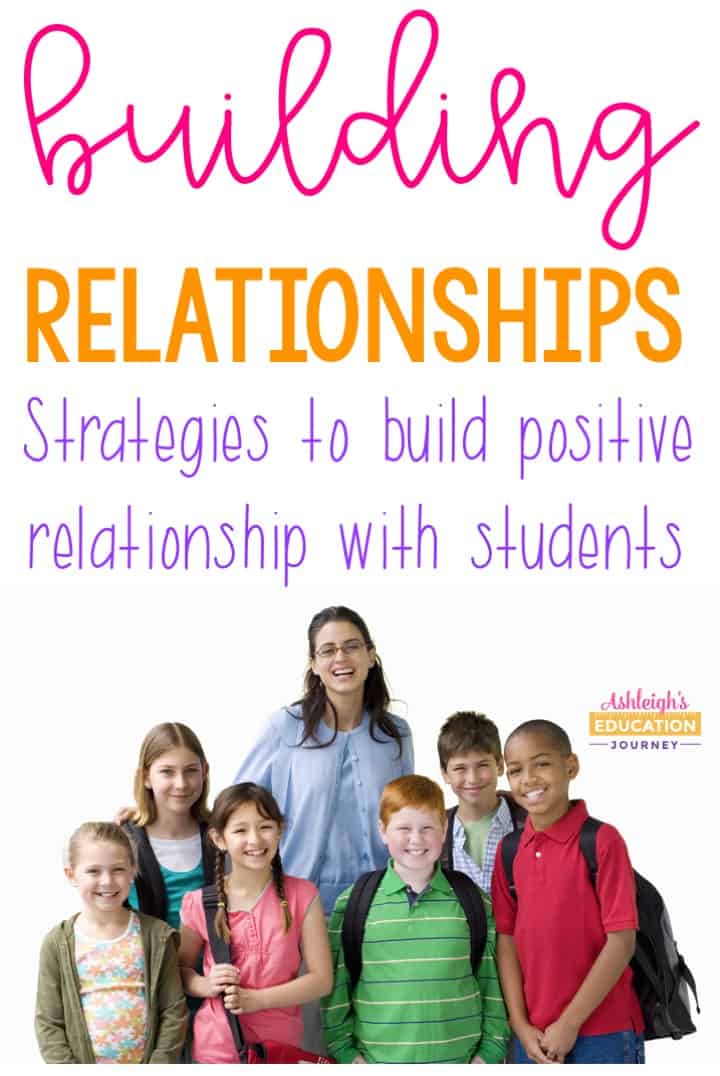
Classroom Management Strategy Tactics
Be Authentic
It’s important for us to be our authentic selves. Children have an uncanny way of seeing through anything that’s not real. I know that singing and dancing, especially on top of desks, is the thing to do right now, so I thought I’d give it a try. Unfortunately, I am the most uncoordinated person in the world. In fact, I’ve fallen simply walking down the hallway — more than once — each year. I’m also super laid-back, so being ultra peppy is not something that comes naturally to me.
Despite those obstacles, I still wanted to try. However, my students kindly told me to stop, because that just didn’t work for me. The point of that embarrassing story is that we shouldn’t try to pretend to be something that we’re not. If we want to connect with our students, we must be ourselves— quirks and all — and allow students to be their authentic self.
Take Interest
It’s critically important to get to know our students at a deeper level than emergency contact information and test scores. We should take interest in what’s going on in their life, as well as their concerns, interests, and hobbies. I’ve found that one of the best ways to do this is to listen to stories from my students. I know this can be difficult, because most stories tend to go on forever, and I’m always limited on time.
However, I do try to find time to listen during times like arrival, walking in the hallway, lunch, and recess. Then I ask follow-up questions later in the week. Questions such as, “How’s your baby sister sleeping this week? Is she still waking you up?” This lets students know you actually listened and cared about what they had to say. I also try to go to student events such as recitals, concerts, and sporting events. Yes, this takes up time, but it makes a HUGE impact on students and their families.
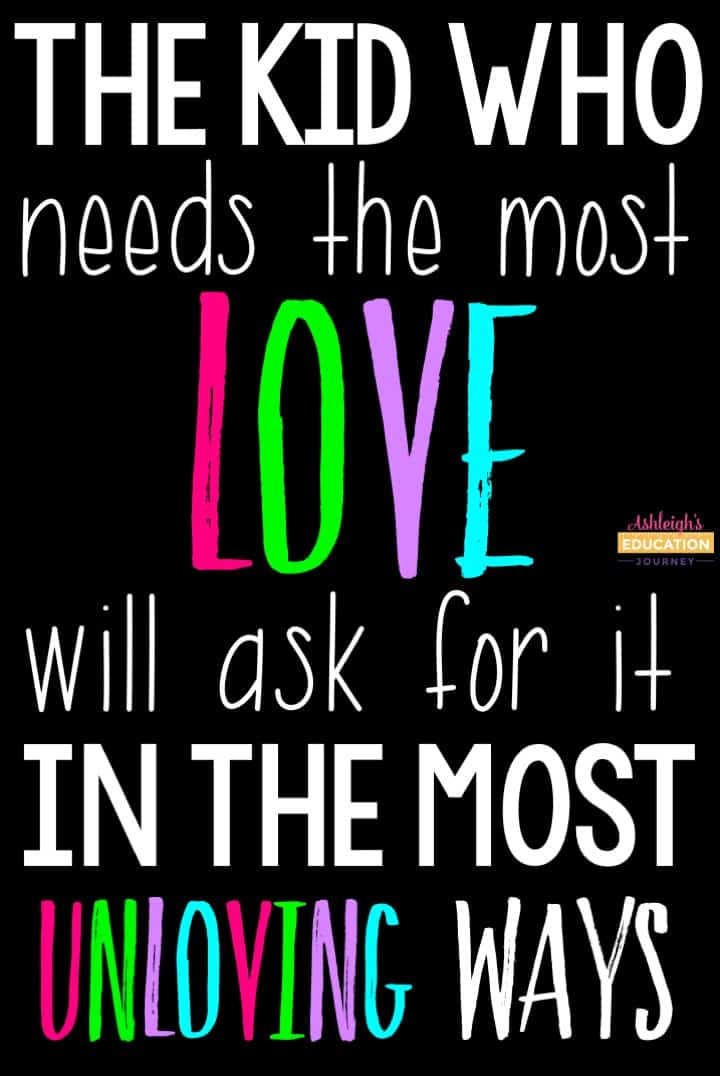
Respect
We all want our students to respect us, but our students also want and need to be respected. Even though I don’t always agree, I try to listen to my students and value their opinions. I may have to teach students how to appropriately disagree or share their opinion, but I do try to give them the opportunity to be heard. I also allow myself to be swayed by their reasoning, because I feel that this empowers students and begins to prepare them for life outside of school. Of course, I don’t change decisions just to make students happy. Instead I try to be reasonable and not rigid when dealing with my students.
I’m also extremely careful in how I talk to students. I try to never sound condescending or belittling, because it’s hard to imagine a faster way to lose their respect and trust. I have to watch myself with sarcasm, because I do think it can be hilarious. However, I never want to use it in a way that would embarrass or negatively impact a student.
Humor
When it comes to developing relationships, humor is my best friend and a key component of my classroom management strategy. I want my students to laugh everyday, even if it’s at my expense. It’s okay to be silly and goofy with students. I can’t tell you how many times I was able to deescalate a potentially bad situation with humor. Sometimes, rather than pressing an issue with a particular student, I try to say something funny to lighten the mood. Then once the student is calm, we can talk about the issue calmly and reasonably. Sometimes it’s smart to back off and to revisit the issue later. This is also a great way to teach students basic social skills, such as when it is and is not okay to be silly or tell jokes.
Stories
My students love it when I tell little stories about my childhood or my own kids. Naturally, I keep appropriate boundaries, but I don’t feel that there has to be a complete separation between my personal life and school life. This allows us to form connections and to share special moments together. I also try to acknowledge and share my mistakes, because students need to see positive responses to mistakes to recognize that it’s okay for them to make a mistake as well. This helps to create a safe and relaxing environment for students.
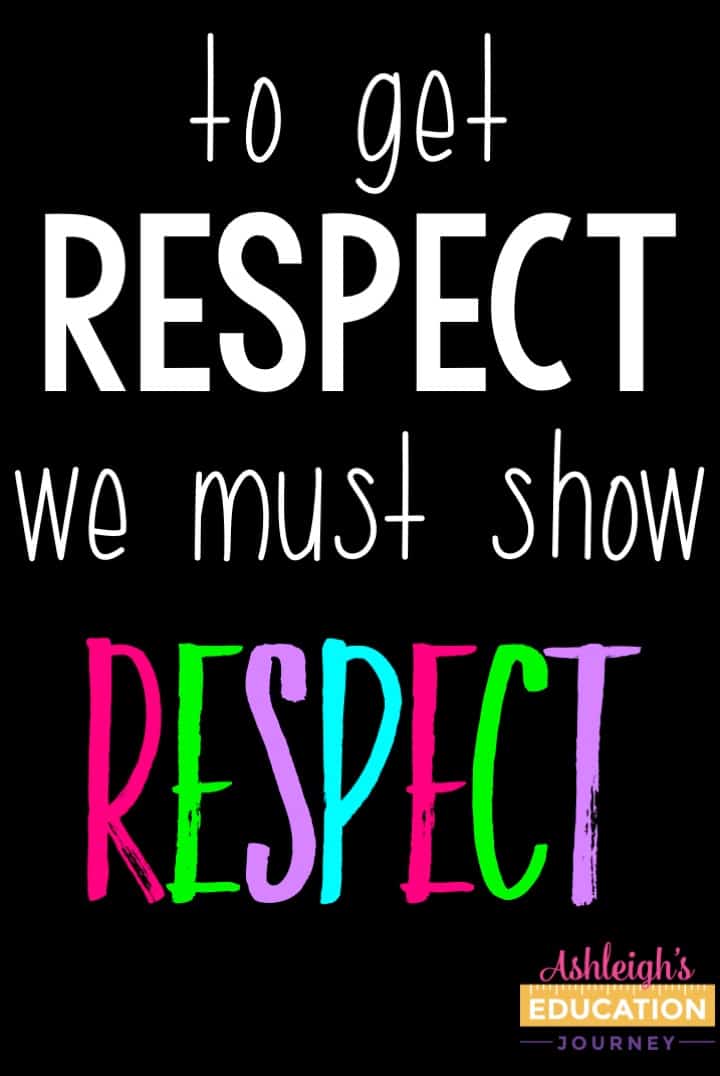
Something Special
My daughter was talking about one of her favorite teachers, and I asked her what made this teacher so great. She though for a moment and responded with, “He makes me feel special.” What a great thing to say about a teacher! There are many things we can do to make a student feel special. Some teachers create individual handshakes for each student and greet students with their special handshake. I’ve known of several teachers who give students fun nicknames, and students always seem to love those names.
Last year I asked one of my most challenging students to get me a Coke from the vending machines, and you would have thought she had won the lottery! It’s funny how asking a student for a small favor means so much to that student. Another way to make students feel special is to spend time with them. Students LOVE it when we eat with them at lunch or play with them at recess. Even if you’re teaching fifth graders, they’re not too big to play with their teacher. Although I will admit that it’s getting harder and harder as I get older. Last year was the first time I ever lost in a race with my students. It was devastating! I don’t do random “student of the week” awards, because I avoid turning things into a competition where it’s possible to “lose” or to miss out with something.
What to Avoid
Even though it may be extremely challenging, I try to always remain calm. Nothing good will ever come from me losing my temper and/or yelling in the classroom. Positive relationships are not formed from fear. I also avoid backing students into a corner where the student has no choice but to rebel or lash out in order to save their pride. I try to give students an out and a choice to give them a sense of control and empowerment. We have to remember that many of our most challenging students have experienced trauma in their life and are desperately seeking some sort of control in their life.
While positive relationships alone will not give you a perfect school year, they certainly make the year more enjoyable for you and your students. This is why I feel so strongly about how essential relationship building is as a classroom management strategy. These relationships have the potential to change lives, and I can’t image a more important job than that.
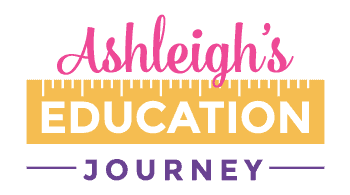
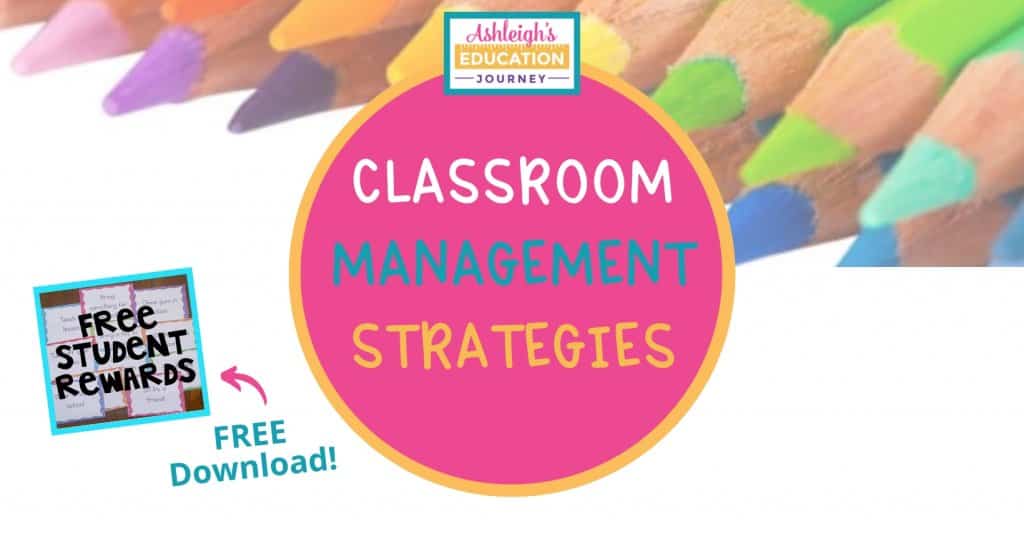
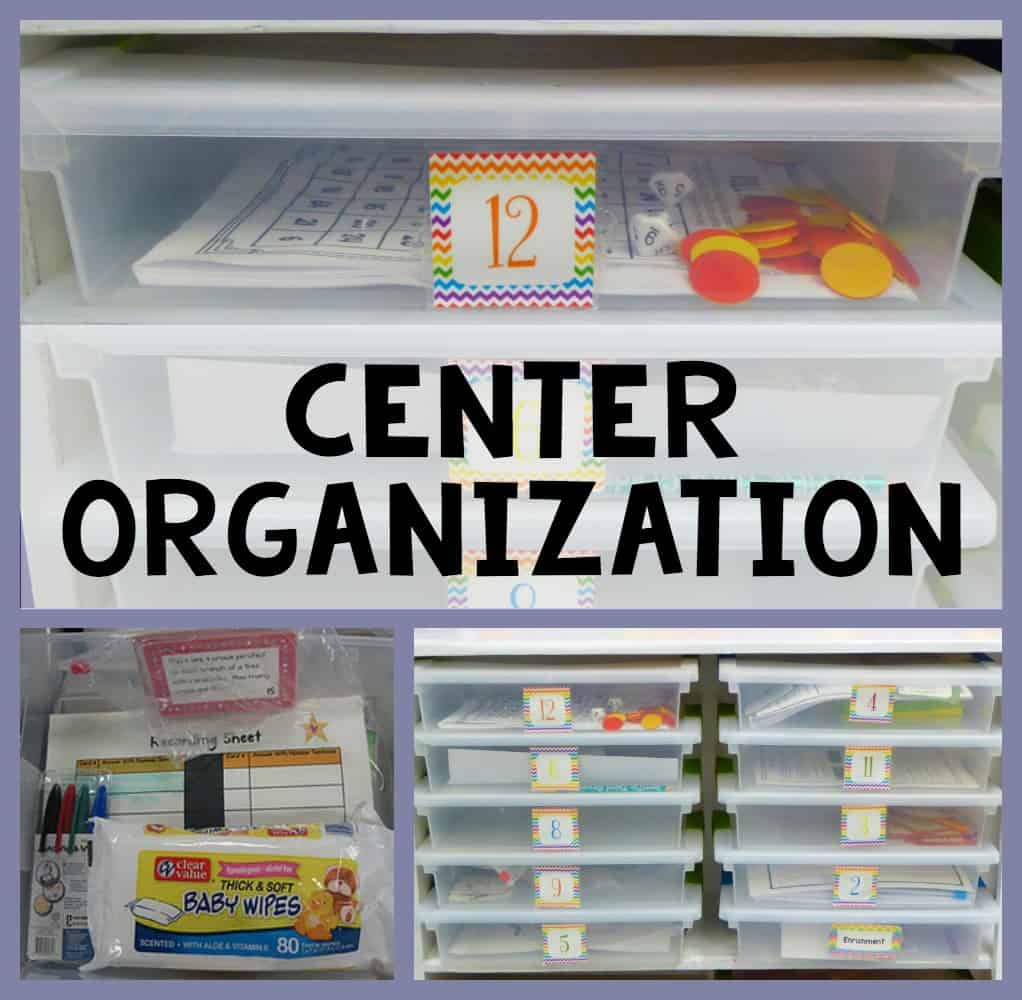
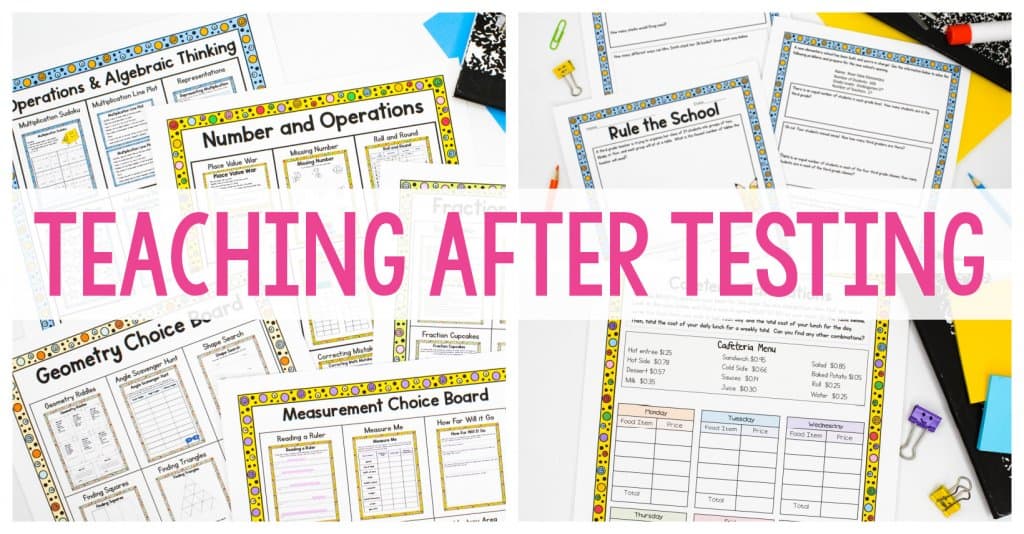
Oh my goodness, what a beautiful post. You have codified everything I try to do in my classroom! Thank you for expressing it so very well. I have to add: I can totally relate to you on two counts — the lack of coordination and the sarcastic sense of humor! There’s a physiological reason for my un-coordination, but it’s really minor issue, so I don’t make a big deal of it, and have learned long ago to just treat my pratfalls as part of life. I really am lucky when compared to someone with a major disability. But I sympathize with how it feels to go splat in the hallway — know you are not alone! And as a Transitional Kindergarten teacher, I have learned to use that sarcasm at their level, which is very literal. My TK kids always crack up when someone is taking to long to wash for lunch and I tell them, “You’re washing your hands, not taking a bath!” They giggle, get the point, and feelings aren’t hurt. Sometimes I hear them repeat it to each other later in the year, proving your point about how they pay attention. Right? Again, I appreciate these awesome thoughts. Saving this so I can remind myself of the important stuff as the year goes on!
I could not agree with you more about these concepts. I had, what everyone told me was, a “really tough group” coming up this past school year. I started right away with stories about my life and choices for my students. They came to respect me as much as I cared for them. What a difference these “little things” make. Thank you for the reminders as I begin to get ready for another new school year. For me, it is especially good to remember the making them feel special idea because it really does not take that much to make them feel special and it is so important for building that student rapport. Thanks!